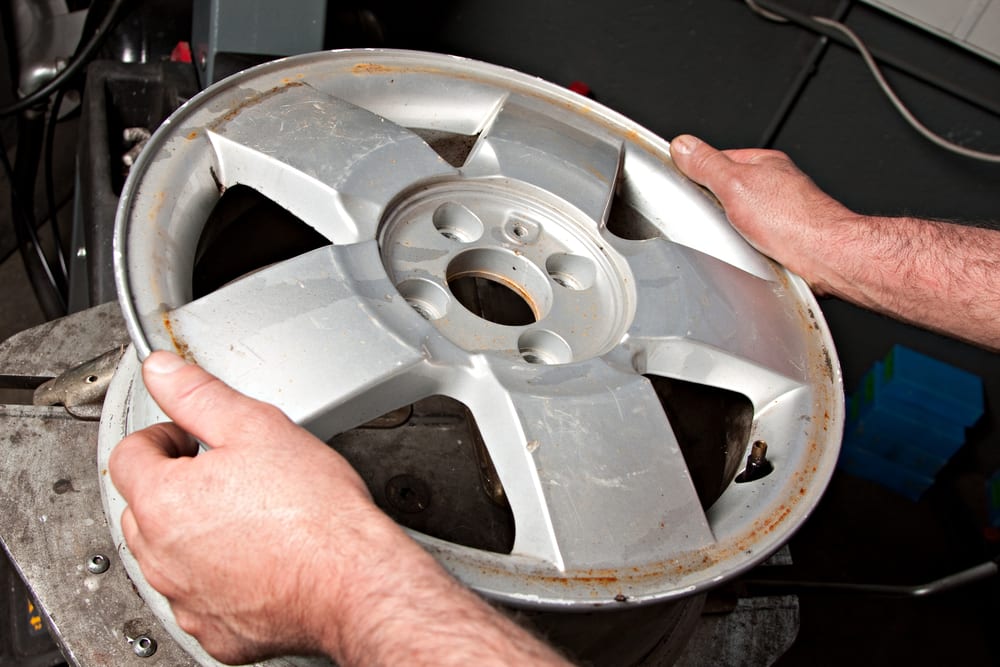

The rim is a large metal circle on which the tire is placed. It creates the shape of the tire and allows it to be mounted to your vehicle. A cracked rim should be repaired as soon as possible, so it does not cause further damage to your tire. Furthermore, it can pose a safety hazard because the tire has potential to blowout.
A few things to watch out for include:
While driving down the road, if you hear a thumping sound and feel vibrations through the steering wheel, you may have a cracked rim. Once you start to notice these symptoms, pull over to the side of the road in a safe area and inspect your tires. If your rim is cracked, you may need to have the tire replaced. Contact a mechanic so they can properly assess the situation.
Other signs of a cracked rim may include having the handling of your vehicle change or your gas mileage going down. If your vehicle starts to pull to one side or you find yourself at the gas pump more often, check your tires and look for a cracked rim.
One of the biggest dangers with a cracked rim is a tire blowout. This means the tire fails and explodes while you are driving. A blowout can cause you to lose control of the vehicle, which can potentially cause an accident harming you or those around you. To prevent a blowout, be conscious of how your vehicle is driving and check to make sure your rims do not have cracks in them.
Most of the time a cracked rim cannot be repaired, the entire wheel has to be replaced. Bent rims can sometimes be repaired, but a cracked rim has the potential to fail so they have to be replaced. Having your vehicle inspected by a certified mechanic will provide you with more information on the condition of your rim, and whether it can be repaired or replaced.
Driving on a cracked rim should be avoided because it can be dangerous. A cracked rim can affect the performance of the tire, and can potentially cause a blowout. This is a hazardous condition to yourself and other vehicles near you. Once you start to notice the signs of a cracked rim, or your vehicle is vibrating while driving, pull over and assess the situation.



